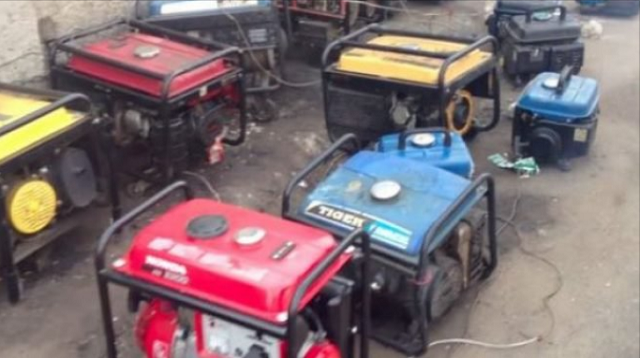According to data from the International Trade Centre, Nigeria spent $5.26 billion importing electrical generating sets, electric transformers, vacuum cleaners, hair clippers, and other machinery and equipment in 2020 and 2021.
According to a recent study by the National Bureau of Statistics, Nigeria obtains 48.6% of its energy needs from generators that are fuelled by gasoline, diesel, and natural gas.
The national system met 51.2% of the country’s power requirements, according to the statistics authority, although many people still had to rely on generators.
A
ccording to the ITC statistics, the country spent $5.26 billion to meet its additional power and electricity demands.
In addition to vacuum cleaners, including dry and wet vacuum cleaners, electromechanical domestic appliances, and electric shavers, hair clippers, and hair-removing appliances, it was stated that electrical machinery, equipment, and parts were imported. These included electric motors and generators, electric generating sets, and rotary converters.
Additionally, they comprised electrical ignition, portable electric lamps, industrial or laboratory electric furnaces and ovens, microphones and stands, sound recording or sound reproducing apparatus, video recording or reproducing apparatus, monitors, and projectors, as well as electrical signaling, safety, or traffic control equipment for railways, tramways, roads, inland waterways, parking lots, port installations, or airports.
Others include electrical apparatus for switching or protecting electrical circuits, or for making connections to or in electrical circuits; boards, panels, consoles, desks, cabinets and other bases. The top countries that supplied the equipment to Nigeria included China, India, the United Kingdom, Germany, and Hong Kong.
According to a report by Stears Business, over 40 per cent of households in Nigeria own and use generators and spend about $14bn annually to fuel them.
The report titled, “Nigeria’s State of Power: Electrifying the Nation’s Economy,” said, “Nigerian households, on average, have electricity in their homes for 15 to 18 hours each day. Of that, 44 per cent (or 6.8 hours) is self-supplied by generators.
“And this differs by geography. In a state like Taraba, only 19 per cent of households report having electricity. Over 40 per cent of Nigerian households own generators and bear the associated costs. First, the cost of purchasing generators – an estimated $500m between 2015 and 2019, is higher than the proposed capital expenditure in Nigeria’s 2022 budget.
“There is also the cost of powering these generators. Sources and estimates vary widely, but the African Development Bank estimated that Nigerians spend $14bn fuelling petrol- or diesel-powered generators.”
The report explained that low petrol prices ensure that small petrol generators are attractive to households and micro, small and medium enterprises). According to the World Bank, about 43 per cent of Nigeria’s population (85 million people) lack access to its electricity grid. This is the largest energy-access deficit in the world.
It stated that a lack of reliable power in the nation is responsible for annual economic losses estimated at five to seven per cent of GDP—for $25bn. It estimated that over 22 million gasoline generators were powering about 26 per cent of all households and 30 per cent of MSMEs in the nation.














